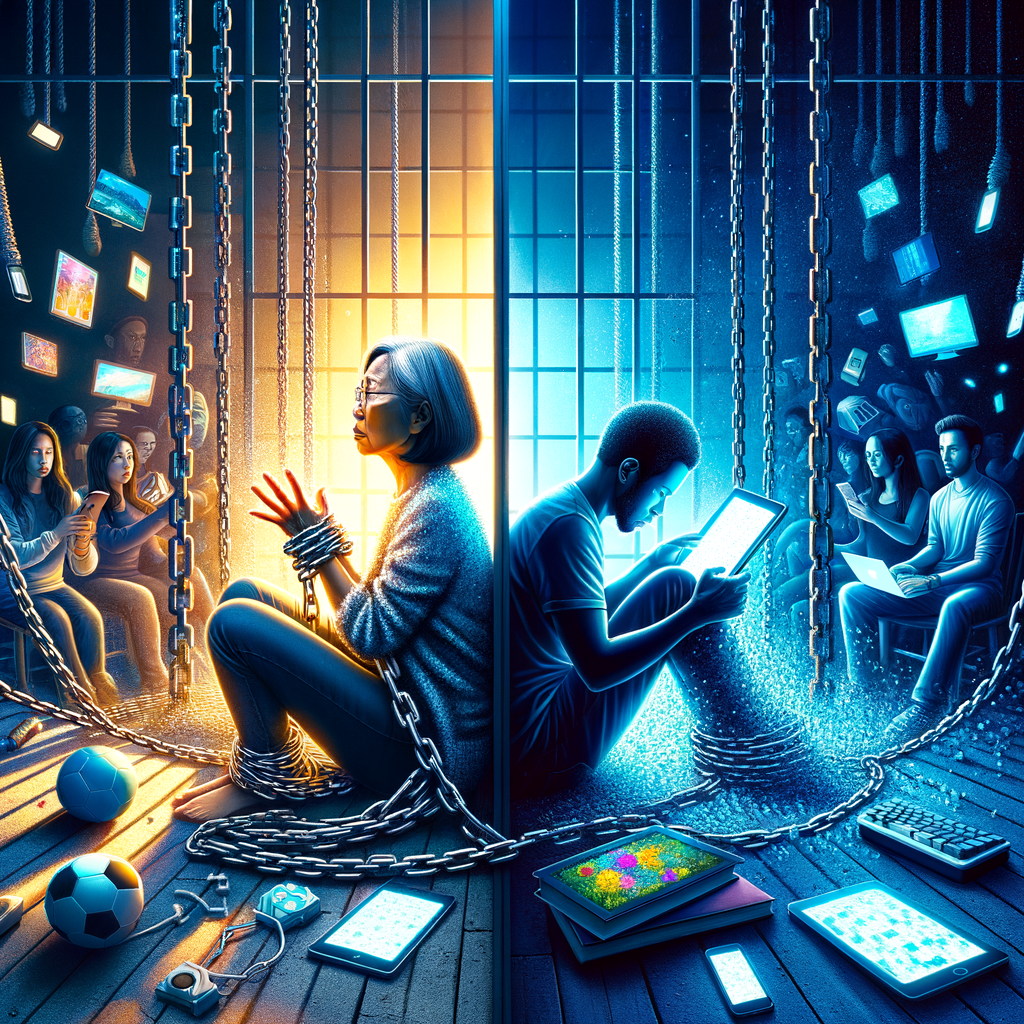The Dangers of Technology Addiction and How to Deal with It
In a world increasingly dominated by technology, where smartphones become extensions of our very being, the phenomenon of technology addiction has emerged as a pressing concern. This blog post will explore the multifaceted dangers of technology addiction and provide practical strategies for mitigating its effects.
Understanding Technology Addiction
Technology addiction refers to the compulsive use of digital devices that significantly interferes with daily life. It encompasses a range of behaviors, including but not limited to:
- Excessive smartphone usage
- Compulsive gaming
- Obsession with social media
- Internet addiction
For many, these behaviours may initially seem innocuous. However, the slippery slope toward addiction often leads to profound negative outcomes. According to recent studies, over 70% of adults report feeling anxious when separated from their devices, a clear indication of the extent of this dependency.
The Dangers of Technology Addiction
The Psychological Impact
Technology addiction carries numerous psychological implications, which can manifest in the following ways:
- Increased Anxiety: The constant need for validation through social media interactions can lead to heightened anxiety levels.
- Depression: Studies have shown a correlation between high social media usage and feelings of isolation and sadness.
- Attention Deficits: Multitasking on devices often diminishes the ability to concentrate on singular tasks.
The Physical Consequences
Physical health can also take a hit due to prolonged technology usage, including:
- Poor Posture: Long hours spent hunched over devices can lead to musculoskeletal disorders.
- Sleep Deprivation: The blue light emitted by screens can disturb natural sleep patterns.
- Vision Problems: Extended screen time can lead to digital eye strain, characterized by dry eyes and blurred vision.
How to Combat Technology Addiction
Tackling technology addiction requires deliberate effort and strategies that can foster a healthier relationship with digital devices. Here are some effective approaches:
1. Set Clear Boundaries
Establish specific limits for device usage. For instance:
- Designate tech-free zones at home, such as the dining room or bedroom.
- Use apps or built-in features on devices that track and limit screen time.
2. Engage in Alternative Activities
Introducing non-digital hobbies can help alleviate dependence on technology. Consider:
- Reading books, drawing, or engaging in outdoor activities.
- Joining local clubs or groups that promote face-to-face social interactions.
3. Practice Mindfulness
Mindfulness practices, like meditation or yoga, can significantly improve mental health. Such practices encourage > self-awareness and can shield against the compulsive urge to reach for devices.
4. Foster Real-World Connections
Prioritize in-person relationships over online interactions. Engaging in conversations and activities with family and friends helps to diminish feelings of isolation often associated with technology addiction.
Conclusion
In conclusion, while technology plays a vital role in our modern lives, recognizing and addressing the dangers of technology addiction is imperative. By implementing the strategies discussed herein, individuals can reclaim their time, enhance their well-being, and foster healthier relationships with technology. It is not merely about reducing usage; it is about enhancing the quality of life in a technology-saturated world.
There you have it… See what works for you…
Campbell M Gold
To Create Health, Wealth, Success, and Longevity through the Power of Your Subconscious Mind, Visit: Campbell M Gold.com
Visit The Store and see what else can be of help


